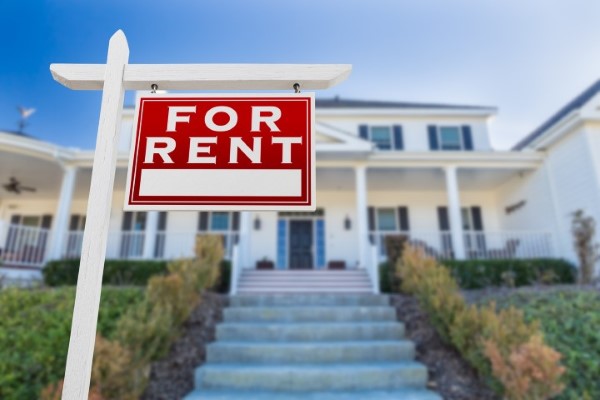
Tips For Tenants Renting A Home
If you've ever wondered how to rent a home, you've come to the right place. From the real estate experts at HomeFinder, this step-by-step guide to renting a home will take you through every part of the process.
Tips For Finding A Rental Home
There are many benefits of renting a home. For one thing, it allows you the flexibility to change your living arrangements to meet your financial needs. Also, you are not responsible for maintenance, repairs, insurance, or property taxes.
1. Work With a Real Estate Agent You Can Trust
Tell them your list of must-haves, what you would like, and absolute deal-breakers. This will give your agent a clearer picture of what you're looking for in a rental home.
2. Online Searches
Using technology to conduct your rental search will help speed up the process. At HomeFinder, you can narrow down your search by zip code, county, address, and street name. You also have access to information about the neighborhood such as schools, population, and other details.
3. Know What You Can Afford
The general rule for a rental budget is to have an income that equals three times the amount of the monthly rent. In fact, financial advisors recommend spending no more than 25% of your monthly income on housing costs. When calculating your housing budget, keep in mind other expenses such as utilities, Internet, water, and other fees. You can ask the property manager about the average price for utilities or call the power company and ask for the exact power bill amounts for the property from the past year.
Tips For Renting A Home For The First Time
1. Inspect the Property
In the HomeFinder guide to renting a home, we advise making a thorough inspection of the property before you sign the lease. Make sure to inspect the water pressure in the showers and faucets as well as the heating and cooling system. Check the locks on all the doors and windows and that the required smoke and carbon monoxide detectors are in place. It's also a good idea to ask the landlord about recent housing maintenance and what was done, especially if it's an older property.
Once the lease is finalized and you're ready to sign, you should inspect the property again and document any damage that you see. Take pictures and fill out a Move-In Inspection Sheet. The landlord may not fix all the issues before you move in, but at least they can't accuse you of the damage and use your deposit to pay for repairs.
2. Carefully Read the Lease
Real estate experts advise you to read the lease carefully, looking out for extra clauses that aren't covered by required by landlord-tenant laws. As ToughNickel explains, "If you are concerned that your lease might be unfair to you...you can seek legal counsel and retain an attorney specializing in landlord-tenant relations."
3. Pay Rent On Time
Landlords expect the rent to be paid on time, and will usually accept cash, checks, or electronic transfers. We don't recommend cash because there is no way to track your money. If you do pay in cash, ask the landlord to provide a receipt that documents the payment date and what the money is being used for.
4. Take Good Care of the Property
If this is your first time renting at home, it is important to take care of the home and prevent any damage, especially since you may need your landlord's reference for future rentals. Being diligent about caring for the property also gives you a much greater chance of getting back your deposit when you move out.
5. Document All Communication With Your Landlord
Text messages and emails are some of the easiest ways to document communication between you and your landlord. Even if you have a good relationship with your landlord, verbal promises can't always be proven in court.
6. Allow For Scheduled Maintenance and Inspections
As long as the tenant is properly notified, landlords are allowed to inspect the property and scheduled maintenance, such as replacing air filters and spraying pesticides. However, these inspections must occur with a reasonable amount of frequency and landlords should give you advance notice. If it becomes excessive, it could be considered harassment.
Renting From Private Owner Tips
While there are benefits of renting a home, it also comes with its share of risks. Follow these practical tips for renting a home from private owners and you'll be able to protect your rights as a tenant, and also enjoy a home that meets your needs and lifestyle.
1. Contact the Landlord For Any Repairs
It is vital that the tenant contacts the landlord if anything needs to be fixed. If the damage goes on for too long, the situation could get worse over time and you could be liable.
2. Don't Violate the Terms of the Lease
Always be upfront with your landlord, which will help you maintain a professional relationship throughout your lease.
How To Protect Yourself As A Renter
1. Know the Landlord-Tenant Laws in the Area
Before you rent a home, do a little research into landlord-tenant laws and make sure you understand your rights and responsibilities as a tenant.
2. Watch Out For Rental Scams
Avoid potential scams by working with an agent that has established relationships with landlords and management companies.
3. Photograph the Property Before You Move Out
In addition to taking photographs of any damage you see when you move in, take photographs of appliances, bedrooms, the backyard, etc. before you move out. By documenting the condition of the property, you can protect yourself if you have any problems getting your deposit back.
HomeFinder is the best place to learn how to rent a home. Featuring millions of rental listings in every state in the U.S., HomeFinder has the perfect home you've been looking for.
